|
|
|
|
|
|
|
|
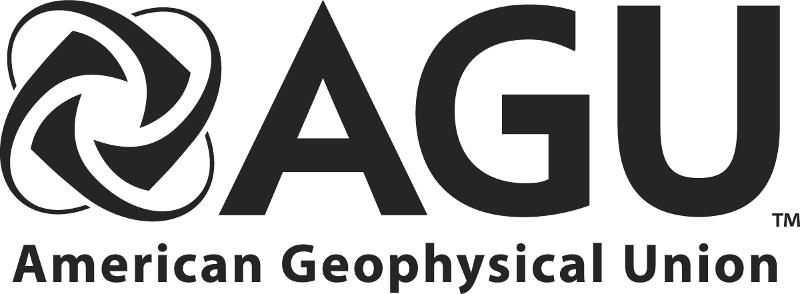 American Geophysical Union Fall Meeting, December 12-16, 2016 (San Francisco, CA USA). Anticipating about 25,000 attendees, AGU's Fall Meeting will again be the largest Earth and space science meeting in the world. 2016 marks the meeting's 49th year and there will be approximately 20,000 oral and poster presentations in over 1,700 sessions, many of which will focus specifically on Arctic science. Among the highlights, the "2016 Arctic Report" was released, NASA had a Town Hall on Operation IceBridge on Dec. 14th and IARPC will hold a "Town Hall Meeting" on Thursday, Dec. 15th, from 12:30 to 1:30 pm (PST) in Moscone West Room 2003. American Geophysical Union Fall Meeting, December 12-16, 2016 (San Francisco, CA USA). Anticipating about 25,000 attendees, AGU's Fall Meeting will again be the largest Earth and space science meeting in the world. 2016 marks the meeting's 49th year and there will be approximately 20,000 oral and poster presentations in over 1,700 sessions, many of which will focus specifically on Arctic science. Among the highlights, the "2016 Arctic Report" was released, NASA had a Town Hall on Operation IceBridge on Dec. 14th and IARPC will hold a "Town Hall Meeting" on Thursday, Dec. 15th, from 12:30 to 1:30 pm (PST) in Moscone West Room 2003.
IARPC Town Hall AGU on the next 5-Years of Federally Funded Arctic Research, December 15, 2016 (San Francisco, CA USA). Conveners will provide an overview of the science and policy drivers, scope, and research goals of the Arctic Research Plan FY2017-2021. The Research Plan describes Arctic research priorities of the Federal Government that are expected to benefit from interagency collaboration during the period FY2017-2021. The town hall will provide an opportunity for the research community to learn about the Research Plan and how they can engage in its implementation. The Plan, drafted by and approved by IARPC, is a product of the National Science and Technology Council of the White House Office of Science and Technology Policy. Additionally, the US Arctic Research Commission will describe the USARC Goals and Objectives for Arctic Research 2017-2018.
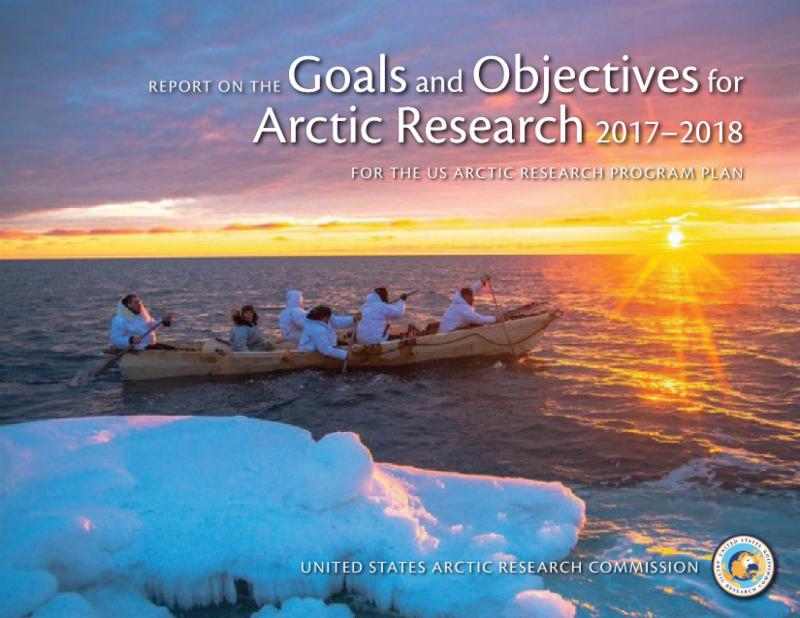 ** NEW USARC GOALS REPORT RELEASED ** ** NEW USARC GOALS REPORT RELEASED **
The USARC will release its biennial "Report on Goals and Objectives for Arctic Research." You can view and download the report here.
Today's Congressional Action:
The House and Senate are not in session.
|
Media
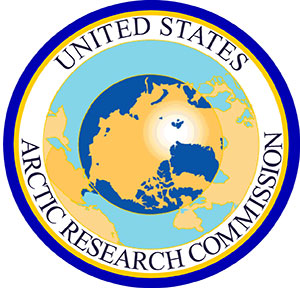 USARC Report Highlights Progress in Arctic Research and Makes New Recommendations. USARC Report Highlights Progress in Arctic Research and Makes New Recommendations. The US Arctic Research Commission today released its " Report on the Goals and Objectives for Arctic Research 2017-2018 for the US Arctic Research Program," at the American Geophysical Union's 2016 Fall Meeting in San Francisco. Emphasizing the need for continued scientific research in all of its six major goals, the Commission released new recommendations for these goals. In addition, the commission also calls attention to progress made on these goals over the past two years.
The Goals Report is published biennially and highlights these priority research areas: 1. Environmental Change, 2. Arctic Human Health, 3. Energy, 4. the "Built Environment," 5. Arctic Cultures and Community Resilience, and 6. International Scientific Cooperation in the Arctic.
You can read and download the report here.
IARPC Report Released. The Interagency Arctic Research Policy Committee (IARPC) announced the release of Arctic Research Plan 2017-2021 today at the American Geophysical Union Fall Meeting in San Francisco, California. The Plan supports U.S. policy across a range of scales-from Arctic peoples and communities to the role of the Arctic in the Earth System-and is organized around nine research goals:
Health & Well-being - Atmosphere - Sea Ice - Marine Ecosystems- Glaciers & Sea Level - Permafrost - Terrestrial Ecosystems - Coastal Resilience - Environmental Intelligence (observations, data, models). The IARPC Collaborations platform allows IARPC to engage with all available research talent in implementing the Plan, such as Federal government and academic scientists, researchers and other stakeholders in the State of Alaska, Alaska Natives, non-governmental organizations, the private sector, and overseas researchers and institutions. IARPC encourages diverse participation in implementing the Plan. If you want to contribute, please visit the IARPC Collaborations website and request an account.
Nunavimmiut Helping to Protect People From Contaminants Worldwide. Several environmental contaminants emitted in the South-including mercury and persistent organic pollutants (POPs) such as PCBs and DDT-travel around the globe and to the North on major air and ocean currents. Then they accumulate in some Arctic wildlife that are important country foods in Nunavik. Over the past 30 years, we have monitored the exposure of Nunavimmiut to PCBs, mercury and lead, and studied their effects on Inuit health. In total, 3293 Nunavimmiut have participated in these studies since 1992. Nunatsiaq Online
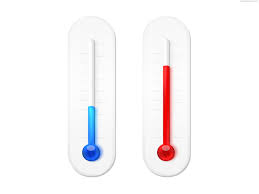 Brown Vows No Letup on Climate. Brown Vows No Letup on Climate. Gov. Jerry Brown directly challenged the incoming Trump administration on climate change Wednesday, promising that California will fight any attempt to roll back progress on the environment, including possibly launching its "own damn satellite" to track global warming. "We've got a lot of firepower," Brown told more than 3,000 climate scientists attending the American Geophysical Union conference at Moscone Center in San Francisco. Not only is California the world's sixth-largest economy, "we've got the scientists, we've got the universities, we've got the national labs and we have the political clout for the battle." San Francisco Chronicle
Drones Help Monitor Accelerating Erosion Along NWT Arctic Coastlines. Researchers are using drones as a better, cheaper way to monitor accelerating erosion along N.W.T.'s Arctic coastlines. Dustin Whalen, a physical scientist with the Geological Survey of Canada, says in the past they used old aerial photographs, satellite imagery, on-the-ground measurements and GPS techniques to track coastal change but none of those techniques give a 3D image or a sense of height. CBC News
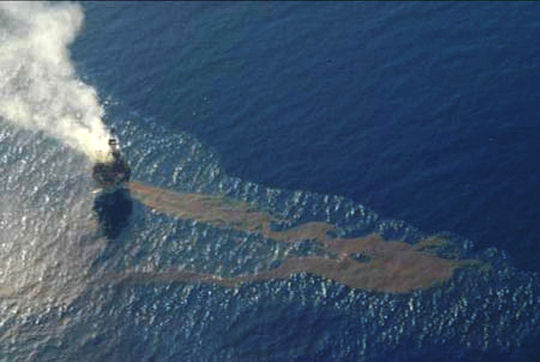 Treated Sawdust May Help Sop Up, Burn Off Arctic Oil Spills. Treated Sawdust May Help Sop Up, Burn Off Arctic Oil Spills. Federal researchers looking for ways to contain petroleum spills in frigid Arctic waters are investigating whether a powder form of humble sawdust can provide a solution. Researchers at the Department of Energy's Pacific Northwest National Laboratory are testing chemically modified wood flour to determine whether it can enhance burning of crude oil after a spill. Tests of small batches treated with components of vegetable oil indicate the material will grab onto crude oil and help keep it near the surface. PNNL senior research scientist George Bonheyo, who is also a research professor of bioengineering at Washington State University, calls the material "incredibly buoyant, ice repelling and water-repelling." Voice of America
Scientists Measure Pulse of CO2 Emissions During Spring Thaw in the Arctic. When the frozen Arctic tundra starts to thaw around June of each year, the snow melting and the ground softening, the soil may release a large pulse of greenhouse gases, namely, carbon dioxide and methane. Little has been known about such releases. Now scientists at the U.S. Department of Energy's (DOE) Lawrence Berkeley National Laboratory, in collaboration with a team of other scientists taking measurements both in the field and in the lab, have quantified the scale of such releases and explained the underlying mechanisms for the phenomenon. Their study was based on a spring pulse in northern Alaska that they documented in 2014 that included CO2 emissions equivalent to 46 percent of the net CO2 that is absorbed in the summer months and methane emissions that added 6 percent to summer fluxes. What's more, recent climate trends may make such emissions more frequent, the scientists conclude. Phys.Org
|
Legislative Action.gif)
No Arctic legislation was formally considered yesterday.
|
|
Future Events
History Lessons for the Arctic, December 19, 2016 (Washington, DC USA). The Center for Strategic & International Studies (CSIS) will host this event. The emergence of a rapidly transforming Arctic Ocean challenges policymakers as the region holds both great economic promise and fraught environmental change, effectively making the Arctic a modern-day policy laboratory where important lessons for resolving international maritime issues should be better understood. A new CSIS report, History Lessons for the Arctic: What International Maritime Disputes Tell Us about a New Ocean, seeks to draw important historical lessons for the future of Arctic maritime governance by using three international maritime dispute case studies ranging from creating marine protected areas to ensuring freedom of navigation and resolving overlapping maritime claims in the Barents and Ross Seas, as well as the Turkish Straits (the 1920 Spitsbergen Treaty, the 1936 Montreux Convention, and the 1959 Antarctic Treaty and Subsequent Antarctic Treaty System). Please join us for a discussion of history and its modern, geostrategic applications in the Arctic.
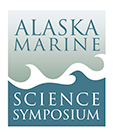 Alaska Marine Science Symposium, January 23-27, 2017 (Anchorage, AK USA). Alaska Marine Science Symposium, January 23-27, 2017 (Anchorage, AK USA). The annual Alaska Marine Science Symposium (AMSS) is Alaska's premier marine research conference. It brings together roughly 800 scientists, educators, resource managers, students, and interested public to discuss marine research being conducted in Alaskan waters. Research will be presented by geographic theme, including the Gulf of Alaska, Bering Sea & Aleutian Islands, and the Arctic. Topic areas will include ocean physics, fishes and invertebrates, seabirds, marine mammals, local traditional knowledge and more. Keynote presentations will be held Monday, January 23rd; Gulf of Alaska presentations will be on Tuesday, Bering Sea/Aleutian Islands on Wednesday, followed by the Arctic on Thursday. USARC will also do a "State of Alaska release" of its 2017-2018 "Goals Report" at this symposium. A prior release will be at the AGU meeting, described above, on December 15th.
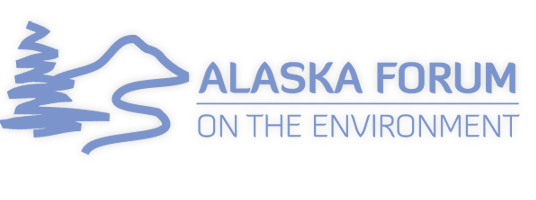 Alaska Forum on the Environment, February 6-10, 2017 (Anchorage, AK USA). Alaska Forum on the Environment, February 6-10, 2017 (Anchorage, AK USA). This statewide gathering of environmental professionals, community leaders, Alaskan youth, conservationists, biologists and community elders will be holding its 19th meeting to continue providing a strong educational foundation for all Alaskans and a unique opportunity to interact with others on environmental issues and challenges. As many as 1,800 people are expected to attend AFE this years meeting.
6th Annual Fletcher Arctic Conference, February 17-18, 2017 (Medford, MA USA). Fletcher Arctic VI, a TEDx-style event, will showcase the ideas, stories, and initiatives of people who live and work in the Arctic. The conference will bring together inspiring leaders, innovative business people, expert scientists, and artists from the pan-Arctic region. Building on The Fletcher School's interdisciplinary approach, Fletcher Arctic VI will be a forum to engage in conversation and spark open and constructive debate between speakers and participants, providing deep insights into this unique and rapidly changing region.
IV International Forum, March 2017 (Arkhangelsk, Russian Federation) Arkhangelsk will host the Forum. The Forum will be titled Human in the Arctic and will be aimed at putting together joint efforts of the international community to promote effective development of the Arctic region as a territory for comfort life, work and leisure. The Forum will be attended by government officials, representatives of international organizations and prominent business communities, centers for political studies, Polar researchers and members of the international Arctic expeditions, foreign political scientists and economists, Russian and foreign journalists from leading international media organizations. The Forum will be attended by the President of the Russian Federation, Mr. Vladimir Putin. Additional information will be announced here.
- The Arctic Cryosphere
- Pollution in the Arctic
- Human Health Aspects of Pollution and Climate Change
- Global and Arctic Systems Feedback Mechanisms
- Resilience within Arctic Ecosystems
- Science and Policy Making
- Socio-Economic Drivers and Impacts of Arctic Change
Organizers announce a call for abstracts which are due by December 2, 2016. The event is organized by the Arctic Monitoring and Assessment Program (AMAP).
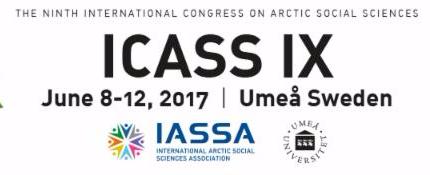 Ninth International Congress of Arctic Social Sciences: People and Places (ICASS IX), June 8-12, 2017 (Umeå, Sweden).ICASS IX's theme is People & Place. Research on social sciences and humanities have a great responsibility to address the challenges for sustainable development in the Arctic, with a specific focus on the many different parts of the Arctic and the people that live there. The multiple Arctics have lately been addressed by many policy makers and researchers. The purpose is often to counteract the stereotypic understanding of the Arctic too often represented by icebergs and polar bears. A focus on people and place highlights the many variances across the region in terms of climate, political systems, demography, infrastructure, history, languages, legal systems, land and water resources etc. Ninth International Congress of Arctic Social Sciences: People and Places (ICASS IX), June 8-12, 2017 (Umeå, Sweden).ICASS IX's theme is People & Place. Research on social sciences and humanities have a great responsibility to address the challenges for sustainable development in the Arctic, with a specific focus on the many different parts of the Arctic and the people that live there. The multiple Arctics have lately been addressed by many policy makers and researchers. The purpose is often to counteract the stereotypic understanding of the Arctic too often represented by icebergs and polar bears. A focus on people and place highlights the many variances across the region in terms of climate, political systems, demography, infrastructure, history, languages, legal systems, land and water resources etc.
The 2nd Asian Conference on Permafrost, July 2-6, 2017 (Sapporo, Japan). Delegates will participate in state-of-the-art oral and poster presentations in the modern city of Sapporo (host of the 1972 Winter Olympics). Field trips will visit marginal and extrazonal mountain permafrost sites that support unique geo-eco-hydrological features. All aspects of frozen ground research will be covered, from needle ice to deep permafrost, from frozen ground engineering in cities to permafrost on volcanoes, and from links between frozen ground and ancient cultures to present-day outreach. Plan now to enjoy science and engineering, excellent food, and unique field trips in Sapporo.
7th Symposium on the Impacts of an Ice-Diminishing Arctic on Naval and Maritime Operations, July 18-20, 2017, Naval Heritage Center, Washington, DC.
.
- Small and off-grid community energy solutions
- Oil and gas development
- Renewable energy
- Regulation and Financing
- Transportation and transmission
The AES is a multi-disciplinary event expected to draw several hundred industry officials, scientists, academics, policy makers, energy professionals and community leaders together to collaborate and share leading approaches on Arctic energy issues.
 Polar Law Symposium 2017 and Rovaniemi Arctic Spirit, November 13-16, 2017 (Rovaniemi, Finland). The purpose of the Polar Law Symposium is to examine, in detail, the implications of the challenges faced by the Polar Regions for international law and policy and to make recommendations on appropriate actions by states, policy makers and other international actors to respond to these emerging and re-emerging challenges. The Rovaniemi Arctic Spirit Polar Law Symposium 2017 and Rovaniemi Arctic Spirit, November 13-16, 2017 (Rovaniemi, Finland). The purpose of the Polar Law Symposium is to examine, in detail, the implications of the challenges faced by the Polar Regions for international law and policy and to make recommendations on appropriate actions by states, policy makers and other international actors to respond to these emerging and re-emerging challenges. The Rovaniemi Arctic Spirit
Conference is integrated with the Polar Law Symposium, which will be organized by the Northern Institute for Environmental and Minority Law at the Arctic Center of the University of Lapland.
 POLAR 2018, June 15-27, 2018 (Davos, Switzerland). POLAR2018 is a joint event from the Scientific Committee on Antarctic Research (SCAR) and the International Arctic Science Committee (IASC). The SCAR meetings, the ASSW and the Open Science Conference will be hosted by the Swiss Federal Institute for Forest, Snow and Landscape Research WSL under the patronage of the Swiss Committee on Polar and High Altitude Research. The WSL Institute for Snow and Avalanche Research SLF is organizing POLAR2018. POLAR 2018, June 15-27, 2018 (Davos, Switzerland). POLAR2018 is a joint event from the Scientific Committee on Antarctic Research (SCAR) and the International Arctic Science Committee (IASC). The SCAR meetings, the ASSW and the Open Science Conference will be hosted by the Swiss Federal Institute for Forest, Snow and Landscape Research WSL under the patronage of the Swiss Committee on Polar and High Altitude Research. The WSL Institute for Snow and Avalanche Research SLF is organizing POLAR2018.
|
|

  
4350 N. Fairfax Drive, Suite 510
Arlington, VA 22203, USA
External links in this publication, and on the USARC's World Wide Web site ( www.arctic.gov) do not constitute endorsement by the US Arctic Research Commission of external Web sites or the information, products or services contained therein. For other than authorized activities, the USARC does not exercise any editorial control over the information you may find at these locations. These links are provided consistent with the stated purpose of this newsletter and the USARC Web site.
|
|
|
|
|
|
|
|
|